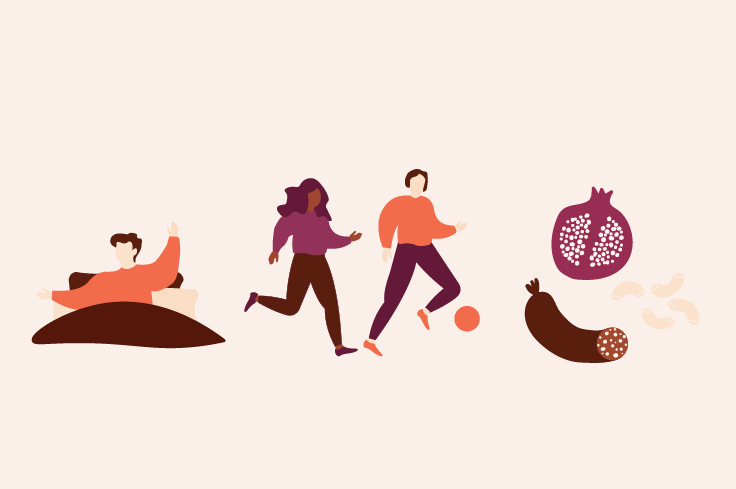What gives us energy?
Are you a person who usually gets on with things, without considering what you really need to feel good?

The mere idea of giving yourself a full day off a week, taking regular breaks during the study day or stopping studying before a task feels like it’s completely done can seem impossible for some people, but may be necessary to prevent ill health. What gives energy is easily prioritised away when we have a lot to do. This can involve skipping meals and breaks, not seeing friends or sleeping less in the belief that you can then get more done. Below are some areas that are usually important for us to have energy.
Food, sleep and exercise
Almost all advice on taking care of yourself includes eating regularly, sleeping enough and engaging in physical activity regularly. When we meet these needs, it contributes to increased resilience and makes us able to put up with more. The production of stress hormones is reduced, and we’re better able to handle everyday demands.
Recovery
Recovery is what we do to regain balance after expending energy. That is, something that represents a break from what we have been doing, such as moving if we’ve been sitting all day, going out if we’ve been inside or resting if we’ve been active. What constitutes recovery can be different for different people. Some feel relaxed when watching a TV series, others when taking a walk, drawing or playing an instrument. Recovery can be both passive, i.e. that you are still, and active, i.e. that you are doing something / are in motion.
Socialising and doing fun things
For many, social interaction is a form of recovery. Interaction can be online, in groups or with individual people. Activities that make you happy and things that feel meaningful can also provide energy, i.e. doing what matters to you and not just what you feel you have to do.
- When and how do you recover?
- How is your eating, sleep and exercise?
- Is there anything you need to do more of to get more energy?
Examples of recovery activities:
- Hot bath or shower
- Reading
- Relaxation exercise
- Yoga
- Being in nature
- Singing in a choir
- Working out/other forms of training
- Going for a coffee/talking to a friend
- Listening to music
- Watching a film
- “Just being”